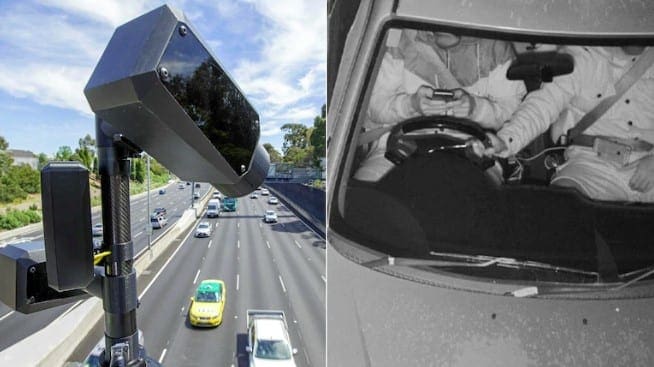These holidays, I took the break as an opportunity to visit family and friends in Western Australia. One of my favourite places in Perth is the port city of Fremantle, which has now become another suburb in Perth's south. Here there are beautiful heritage buildings, as well as modern craft breweries and the opportunity to taste the best Italian food in Australia.
 From Fremantle you can catch a short ferry to Rottnest Island, which has recently become famous as the home of the quokkas (pictured) and a really lovely place for a day-trip, as cars are not allowed on the island, and the roads between beaches are filled with bicycles and walkers. Even if you are stung by a jellyfish (as I was!) you will still have a brilliant day.
From Fremantle you can catch a short ferry to Rottnest Island, which has recently become famous as the home of the quokkas (pictured) and a really lovely place for a day-trip, as cars are not allowed on the island, and the roads between beaches are filled with bicycles and walkers. Even if you are stung by a jellyfish (as I was!) you will still have a brilliant day.
Then I went down to the famously beautiful South-West, where there are beaches, wineries, caves, lighthouses and many other delights. Pictured is the beautiful Meelup Beach located in the Meelup Regional Park, and some grapes growing at my favourite winery, Hay Shed Hill, in the Margaret River region.


Next I went further south and slightly east to the Southern Forests region of WA and saw the Valley of the Giants, an ancient tingle forest, where tingle trees such as the one pictured can grow up to 75 metres tall, and can develop a distinctive hollow base. People used to park their cars in the base, until it was discovered that to grow so tall, tingle trees develop very horizontal root systems buttressing the tree, and these shallow systems were damaged by tourists until a tree fell down. The scenery and beaches were also beautiful here, especially Greens Pool and Elephant Rocks, which are a must-do for anyone going to southern WA who loves to swim.


I would whole-heartedly recommend going to Western Australia if you have the opportunity - the food, nature, people and sights are fantastic. This relaxing holiday has rejuvenated me for 2020, and I'm glad I've been able to share some of it with you!
As 2019 comes to a close, we at Freedman & Gopalan have been reflecting about the year that's been and the year (and decade) that is to come.
Read each of our team members personal reflections below:
The Australian Consumer Law has been amended to provided greater protections for consumers in Australia in relation to gift cards. These Australia-wide changes reflect the requirements of the NSW Fair Trading Act 1987 which introduced similar changes in March 2018 for gift cards sold in NSW, which you can read more about in our previous article.
Now, for gift cards supplied on or after 1 November 2019 anywhere within Australia, the following changes will apply regardless of the terms and conditions written on the gift card:
- Gift cards must have a minimum three year expiry period, commencing from the day a gift card is sold to a consumer,
- Gift cards must prominently display expiry dates,
- Most post-purchase fees on gift cards are banned, including activation fees, account keeping fees and balance enquiry fees.
The above requirements will not apply to specifically excluded gift cards, such as those part of an employee rewards program, or supplied as part of a temporary marketing promotion or where the good or service will expire at the end of a certain period (e.g. entry to a art exhibition).
Breaching the above requirements will result in a fine of $30,000 for a body corporate, or $6,000 for individuals. The Australian Competition and Consumer Commission (ACCC) also have the discretion to impose an infringement notice on a body corporate or individual.
These changes bring justice and consistency to Australian law in relation to gift cards, but any gift cards issued before 1 November 2019 will be subject to the previous regime.
If you have any query or issue in relation to the above article, please do not hesitate to contact Freedman & Gopalan Solicitors to discuss your options.
Fines are an integral part of the justice system in NSW which ensures compliance with laws and regulations. They are the most common penalty imposed by the courts of summary jurisdiction in Australia. They, alongside taxes, also form a core component of the revenue that funds government operations. In parking fines alone, Sydney councils have collected more than $650 million over the last four years. But has the prevalence of fines escalated recently?
Currently in NSW there are fines for traffic offences, such as speeding or not wearing a seat belt, public transport offences, such as travelling without a ticket, other minor criminal offences such as offensive behaviour and there are local council fines for parking, littering, not having pets properly registered, as well as fines for not paying road tolls.
You will have noticed two new major fines in the recent weeks. Firstly, the NSW government is rolling out fines for drivers caught using their mobile phones (read more here) and secondly, a new set of fines are being introduced in relation to the introduction of the new Sydney light rail. Drivers face a $191 fine if they are caught in a tram safety zone, overtake a tram turning right or if they fail to give way to a pedestrian. A $344 fine may be imposed if drivers don’t give way to a tram or drive through a dividing strip break. Pedestrians also face a $76 fine for crossing unsafely near trams – more than 150 pedestrians have already been issued with such a fine. Cyclists face a $268 fine for entering tramways, which are marked by two parallel lines or a fence.
Most fees and fines in NSW can be paid by going to the NSW Government Revenue website which processes payments for over 250 separate organisations, including local councils, NSW Police, Sydney Trains. NSW Government Revenue also directly issues penalties for camera-detected offences like speeding, driving through a red light and driving in bus lanes. In the future, this will also include the camera-detected offences of using a mobile phone while driving.
Thus, there is an increased use of fines, issued not by the courts and judiciary, but by government revenue agencies and often automatically issued for camera-detected offences. This means there is little public scrutiny over their accuracy or fairness. Fines do not involve the traditional procedural safeguards of the courts, such as the presumption of innocence and a court hearing where the circumstances of the offence and the financial means of the offender are considered. Another issue is that where individuals are unwilling or unable to pay, they may be imprisoned for default.
Introducing new fines is a serious matter, and when this happens it is important that we as citizens scrutinise whether we agree with the decision, whether the offence is serious and if the increase in fines is a broader issue of which we need to be aware. Some critics argue that the increase of fines is a symptom of a broader trend, which is the commercialisation of justice.
If you are facing an unjust penalty such as a fine, contact us at Freedman & Gopalan Solicitors to discuss your options.
Commencing 1 December 2019, Transport NSW has introduced mobile phone detection cameras across the State. Unlike the pre-existing speed cameras, drivers will not be warned of their presence on the roads and most of their locations are unknown to the public.
How do they work?
The new technology utilises an overhead camera to take a photo of the driver seat, after which an artificial intelligence program automatically analyses the image to check if a driver is using their phone. It is then checked by an authorised adjudicator and penalty notice is issued to drivers caught using their mobile phones. The system supposedly works at night, in all weather conditions, and even in the driver is at speeds of 300km/h.
What constitutes as legal mobile phone use?
- Drivers are ONLY permitted to do use the following functions if the mobile phone is secured to the vehicle through a cradle, or can be operated without touching the phone:
- Make or receive audio call;
- Use music or audio functions;
- Use a driver’s aid such as GPS.
These functions are not available for drivers who hold a Learner of Provisional License.
- Accessing a Digital Driver’s License is permitted only after a police officer has asked you to do so.
- Using a Wallet Function such as making a transaction is stationary or off the road in areas like a car park, driveway or drive thru.
- If you want to access any other function the car must be parked.
What constitutes as illegal mobile phone use?
Use of the following functions are prohibited, unless the car is parked.
- Video calls;
- Text messaging;
- Emailing;
- Using social media;
- Web browsing;
- Photography functions
Restricted licences holders including learner, P1 and P2 drivers and riders are not permitted to use their phone at all while driving or riding. This includes use of hands-free and Bluetooth functions.
What penalties could be incurred as a result of illegal mobile phone use?
Warning letters relating to camera-detected offences will be issued for the first three months. Following this period, the penalty for offending drivers is five demerit points and a $344 fine ($457 in a school zone). The penalty increases to 10 demerit points during double demerit periods.
A recipient of the penalty can request a review of on the Revenue NSW website.
With the holiday period approaching, NSW Police are warning drivers not to use their mobile phones whilst driving. To avoid temptation, keep your phone in your bag or glove box.
If you would like to seek further information in relation to the above, or need help with lodging a request for review of your penalty notice, please do not hesitate to contact our helpful team at Freedman & Gopalan Solicitors on 02 8917 8700, and we will be happy to assist you.
With the development of technology, society has benefited from an improved access to information, advancements in medicine and an ability to communicate on a global scale.
Technology has also caused the area of family law to adapt and grow with societal changes. The legalisation of same sex marriages and abortion are among the few reforms which have occurred, largely because of an expression of changing societal opinions throughout social media.
The affects of technology can also be seen in the area of reproduction. Traditionally, couples who were unable to conceive children were faced with the impossibility of starting a family. Whilst there is the avenue of IVF, couples may be deterred from these treatments as they can sometimes be invasive, and they are typically expensive.
Alternatively, prospective parents, single women or same sex couples could approach a sperm clinic in order to make their dreams of parenthood a reality. However, there is a strict process involved and the supply of sperm worldwide to donor organisations is limited.
With social media playing a major role in today’s society, these couples are now turning to media platforms in order to seek suitable persons to donate sperm.
Facebook group, ‘Sperm Donation Australia’ provides a platform for men to provide sperm donations, and for other couples to search for sperm donors. The group currently has more than 5,800 members and offers an online gallery of donors for prospective parents to browse through. Aiming to protect the privacy of both its donors and its prospective parents, the group is closed and access to it is subject to the group owners approval.
Whilst this is a huge development, there are legal issues to consider. Couples who choose to use this avenue are warned that there is no legal binding agreement in place. In this sense, there is the potential for a dispute to arise surrounding the legal parentage of the resulting child.
In a decision handed down earlier this year, the High Court has expanded the definition of a “legal parent” to include a sperm donor. Where a sperm donor can demonstrate that they have an ongoing involvement and relationship with the child, then the law will recognise them as having legal parentage over that child. In the case of anonymous sperm donors, who have not seen or had a relationship with the biological child, then the law will not consider them as being their legal parent.
Accordingly, where a sperm donor does not wish to have any parental responsibility over a child, they may now find themselves exposed to the full gamut of responsibility, including child support and inheritance. Likewise, single mothers who do not wish to share parental responsibility with a sperm donor may be faced with parentage orders.
It is therefore in the best interests of all parties involved that a Sperm Donor Agreement be drafted and executed prior to entering into any donor-acceptance arrangements. Although it may not be legally binding, by clearly setting out their intentions in the agreement, both parties will be protected.
Are you thinking of undergoing the sperm donor process? Contact us at Freedman and Gopalan Solicitors to obtain general advice in relation to your rights and that of a donor.
In the wake of the devastating bushfires in NSW, Australians are forced to ask themselves, “is my house and contents protected in the event of a disaster?”
If you have insurance, the damages and losses resulting from bushfires may be recoverable. However, this is dependant on what type of insurance you have, and the extent of that cover.
What type of insurance should I have?
When considering what type of insurance to use, you should consider what it is that you are trying to protect. For example, Home Building Insurance covers you for any destruction or damage to a building, whilst Home Contents Insurance covers any damage to personal belongings and household possessions.
If you think you may have insurance but cannot remember which company it is with, you can ring the Insurance Council of Australia on 1300 728 228. In the event of a large-scale disaster, there is usually also a dedicated Catastrophe Hotline created to assist policyholders if they are uncertain of their insurance details or have general inquiries about the claims process. For those affected by the NSW Bushfires, you can access the hotline on 1800 734 621.
Does my insurance policy cover me?
Insurance policies vary in wording from policy to policy as to the types of risks or insured events they will cover, and what events or losses are excluded. For example, some policies may not insure properties that have been damaged where a person or entity is found to be responsible for starting the fire which lead to the bushfire. It is important that you read your policy and understand what you are covered for. This will ensure that you get all of the benefits you are entitled to.
Many policies also impose a general obligation on the policy holder to take reasonable precautionary measures to prevent loss. For example, clearing your gutters to reduce the risk of leaves in the gutter catching fire from embers carried by the wind.
Things to check for in your policy.
In relation to the extent of bushfire cover, some insurance policies include the following limitations:
- Have an embargo or time delay after you’ve entered into the insurance contact for the policy to take effect. Generally, bushfires within the first 48 or 72 hours of you first taking out the policy are not covered;
- Exclude cover for any damage caused by scorching, burn marks or melting are not covered where there has been no flame, or where there was no burning building within 10 metres of your home; or
- Limit cover where you have not taken adequate precautions to prevent damage or loss.
What should I do to ensure I am covered?
If your property and contents are insured, your insurer may still refuse to pay any claim made. In order to ensure that this does not happen to you, follow these steps:
- Contact your insurers and notify them about your claim.
- Take photographs of any damaged items and make an inventory of your losses.
- Do not dispose of any items unless hazardous. Where you do dispose of an asset, document everything and try to get the insurer’s consent.
- Take reasonable steps to minimise your loss, such as, securing your contents by erecting a temporary shelter over them. Try and document this with photos, invoices and any other evidence.
- Seek independent legal advice when entering into an insurance policy in order to ensure that you are protected by your policy.
If you would like to seek further information in relation to the above, or need help with an insurance claim, please do not hesitate to contact our helpful team at Freedman & Gopalan Solicitors, and we will be happy to assist you.
Definition
According to the World Health Organisation, the abuse of older people or commonly known as ‘elder abuse’ is defined as:
“a single or repeated act, or lack of appropriate action, occurring within any relationship where there is an expectation of trust, which causes harm or distress to an older person”.
Statistics
The Australian Institute of Family Studies estimate 2 to 14% of older Australians experience elder abuse in any given year.
However, this issue is chronically under-reported due to a lack of understanding and the inability of the victims to seek help in situations of abuse.
What is elder abuse?
The issue of elder abuse will only become more prevalent as Australia’s population ages, and can manifest in a variety of ways: -
- Neglect: where an older person is not having their physical, medical or emotional needs met.
- Physical: being slapped, restrained and over- or under- medicated
- Psychological/ Social Abuse: mental stress involving actions and threats that cause isolation from friends and family, fear of violence, deprivation, powerlessness, feelings of shame, being treated like a child or being denied the right to make decisions
- Financial Abuse: being forced to change a Will, being unduly influenced into making contracts, having belongings sold without permission, money taken improperly through misuse of Enduring Power of Attorney and/or denying an older person access to their own money
- Sexual Abuse: acts where the victim’s consent had not been obtained or through coercion. This also includes non-consensual language/ behaviour including inappropriate touching, assault or even rough or inappropriate cleaning or treatment of genital area
What elder abuse is not.
Elder abuse is not age discrimination, or an estranged relationship with a relative. It is also not a crime committed by a stranger or involve self-neglect or self-maltreatment.
Elder abuse is most often perpetrated by someone the person trusts, such as a family member, carer or worker in a nursing home, and most importantly, is not always malicious. Elder abuse can arise through sheer lack of thought about how your actions and decisions impact the person you are caring for.
Who is at risk?
Older persons are at an increased risk when: -
- Have a disability or poor health
- Are living with mental health issues
- Are in dependent caring relationships, particularly where a carer is experiencing carer burden or stress
- Are isolated and/or without personal support systems
- Have a past history of violence or conflict within the family
- Exhibit particularly difficult and/or inappropriate behaviour, and/or confusion or memory loss
- Any persons from culturally and linguistically diverse (CALF) backgrounds
- Are Aboriginal and Torres Strait Islander people
- Exhibit signs and symptoms of cognitive impairment including dementia
What you should do if you are being exploited or mistreated?
- First and foremost, your safety should be the priority. If you are feeling threatened or unsafe, please call 000 as soon as possible. The authorities can assist you in removing the abusive person from your residence or help you find safer accommodation.
- If you believe that the situation is not yet serious and does not warrant telling the authorities yet, have a safety plan ready to help you be know what to do should an emergency occur.
- Find someone you trust, such as a friend, family member or trained professional, to speak to and share your concerns. This will not help your own mental- wellbeing but also ensure that someone else is aware of your situation.
- Whilst you may feel like you are protecting the person who is mistreating or exploiting you, you have a right to feel comfortable and safe in your own home. Just as you can seek assistance, there are professionals who can also help the person with their own problems and who may not be totally aware of the impact of their behaviour it makes on you.
How can we help you?
When preparing a Will, Power of Attorney or other legal documents, we ensure that the client is competent and has the mental capacity to make an informed decision and can provide us with clear instructions.
Particularly in relation to serious cases of financial abuse, we can also seek assistance from court or tribunal to freeze a bank account, recover stolen money or property or reverse an unfair contract.
If you have would like to seek further information or assistance in relation to the above, please do not hesitate to contact our helpful team at Freedman & Gopalan Solicitors, and we will be happy to assist you in any manner!
The Australian Competition & Consumer Commission (ACCC) is a regulatory body that promotes fair trade in the Australian market to protect and benefit consumers, business and the community.
The ACCC has recently launched court proceedings in the Federal Court of Australia against Google. The ACCC's argument is that Google has been misusing the location data of its users, from at least January 2017, in breach of Australian Consumer Law.
The ACCC Chairperson Rod Sims states that consumers did not have the opportunity to make an 'informed choice' about how Google collects, keeps and uses their highly sensitive and personal information, because Google did not make it clear that both 'Location History' and 'Web & App Activity' settings on the phone had to be switched off if users did not want their location data to be retained. Instead, consumers were likely to have understood that by turning off their Location History setting, Google would stop collecting the Location data. Google also failed to disclose that they may use the data for purposes unrelated to the user's use of Google services, such as advertising and production of statistics about users to be shared with third party advertisers.
"Transparency and inadequate disclosure issues involving digital platforms and consumer data were a major focus of our Digital Platforms Inquiry, and remain one of the ACCC's top priorities." [Rod Sims, ACCC Chair]
The ACCC says this is the first time a regulator anywhere in the world has taken on the global tech giant over the misuse of personal data. The ACCC seeks orders for a penalty and the establishment of a compliance program.
If you have any questions in relation to the above, please do not hesitate to contact the team at Freedman & Gopalan Solicitors on 02 8999 9837 or by filling out the enquiry box.











